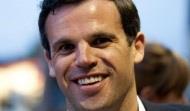American retailers like Walmart and Walgreens are expanding their brands into primary care and are playing a wider role in public health management in the US. Jacob West explores the trend and whether it could translate to the NHS
Last Sunday I drove to my local MinuteClinic in Cambridge, Massachusetts. I parked outside an outlet of pharmacy chain CVS, right by Dunkin’ Donuts and Chipotle Mexican Grill.
I didn’t need an appointment. Inside the store a large screen displayed the price list: $79-$99 for treatment for minor illnesses like ear infections or strep throat, $59 for a diabetes screening, $28 for a TB test.
I entered my details on a touch screen. Five minutes later, a nurse practitioner was ready to see me.
More than 1,600 such health clinics now exist in the US, located in big pharmacy and retail chains like CVS, Walmart and Walgreens. Staffed by physician assistants and nurse practitioners, they provide convenient, first contact care, seven days a week.

‘As retail giants rapidly expand their healthcare operations, it may disrupt mainstream healthcare’
Most accept insurance and all take cash payment.
Over 10 million Americans are already visiting these clinics – a number that has spiked in recent years. It could jump again. By 2016, more than 3,000 clinics will be spread across America.
Obamacare has dominated recent discussion in US health circles. But as retail giants rapidly expand the scale and scope of their healthcare operations, what was a marginal trend may be about to disrupt mainstream healthcare.
Big brand momentum
CVS has recently rebranded itself as CVS Health. It plans to open 600 new MinuteClinics over the next three years.
Previously, they just treated minor conditions. Now services are expanding to include preventative health (vaccinations, screenings and so on) as well as the management of chronic conditions.
Meanwhile, Walmart is positioning itself to become a serious primary care player in its own right.
It will open 12 new primary care clinics across the country this year with a wide range of services.
‘Retail clinics with low rates are meeting the need for many’
Its huge footprint across America, including rural areas that often lack primary care services, makes this a fascinating prospect. What would US healthcare look like if Walmart had a health clinic in all of its 5,000 stores?
Paradoxically, the millions of patients newly insured through the Affordable Care Act may be encouraging this trend.
If you have a large deductible for accessing a primary care doctor, you probably want a cheaper alternative. Retail clinics with low rates are meeting this need.
The upsides of this model seem self-evident: affordable, fast, convenient care.
A paper published in Health Affairs showed that nearly half of these clinic visits happen on the weekends or evenings, when finding a primary care doctor can be a challenge.
Connectivity and continuity
The most commonly heard objection to the retail healthcare model is that these clinics damage continuity of care. But many, maybe most, of these patients don’t have a primary care doctor.
And increasingly these clinics are plugging into the healthcare systems they work with.
CVS, for instance, has affiliations with 44 health systems that allow data sharing through electronic health record systems.
’Increasingly these clinics are plugging into the healthcare systems they work with’
Walgreens appears to be taking this a step further.
Last year it announced the creation of a three accountable care organisations - in Florida, New Jersey and Texas - making it the first pharmacy chain to do so.
It sees its role as helping to expand primary care capacity and playing a wider role in population health management.
Retail therapy
Any lessons for the UK?
Well, some of this is already happening.
Sainsbury’s has experimented with giving space to GP surgeries in a few of its stores. Lloyds Pharmacy has been developing mobile health applications.
But could global consolidation in retail markets accelerate these trends?
Walmart already owns Asda, with over 500 stores across the UK. Walgreens had a 45 per cent stake in Boots and this summer it took the option of buying the rest of the company.
‘Reflect on what healthcare could learn from the best of the retail world’
And with accident and emergency attendances high and rising; GPs under severe caseload pressure; and many NHS walk-in centres being closed - might retailers be prepared to play a bigger role in primary care?
People already pay retailers for travel jabs, eye tests and prescriptions.
Would they trade off a small payment for convenient access to a broader range of primary care services? And what if retailers created partnerships with GPs and other providers, so that costs were not even passed onto patients?
Clearly this isn’t a solution to every healthcare problem.
But next time you shop at your favourite store, why not reflect on what healthcare could learn - longer opening hours, convenient locations, clear product information, customer focus - from the best of the retail world.
Jacob West is a 2014-15 Harkness Fellow at the Harvard School of Public Health. Follow him on Twitter at @west_jake


























7 Readers' comments